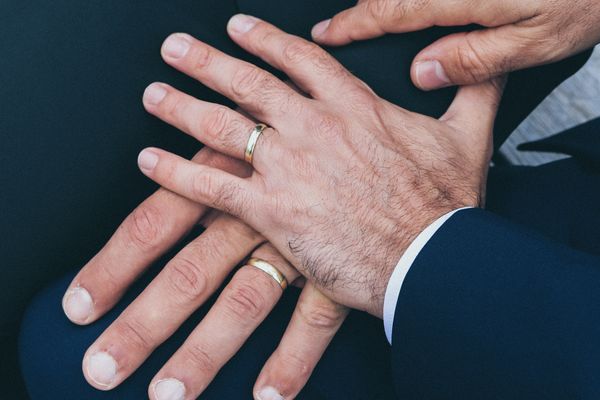Although Ali Wong is a comedian, she's a hero in my mind. I was awestruck by her presence in "Baby Cobra." She's a walking phenomenon, strutting across the stage while visibly pregnant, prompting her audience to laugh at her every move. Through her anecdotes about motherhood and work, she emphasizes the importance of self-confidence. By first using humor to connect with her viewers, she inspires change through them.
Wong jokes that she has "picked boogers larger than the twins [she] lost," breaking down the stigma of miscarriages. This opens up the window of being open and unashamed about painful topics, demonstrating that it's okay to talk about hardships. Wong does this with strength and communicates her losses with a spirit of victory. Rather than hiding in shame about her life experiences, she owns them with dignity, even managing to create laughter out of setbacks.
Wong demonstrates that once you bring experiences into the open, they no longer have the power to bring shame.
Wong's most heroic moment is when she tells a story about standing up for herself. A coworker she had previously heard pooping in the bathroom scolded her about being late to work. Wong fired back, "Don't tell me to get my shit together when I heard you not have your shit together." As a non-confrontational girl who was bullied a lot as a child, I wish I had watched Wong growing up. Even when my family did encourage me to stand up for myself, it seemed unattainable because I had never witnessed it.
Wong was the role model I needed.
Wong also uses humor to fire her shots to male comedians. She laments that it's easy for male comedians to become famous from simply joking about fatherly mistakes, to which other "shitty dads in the audience" respond, "That's hilarious! I identify! And then their fame just swells." Wong uses her position as a comedian to discuss pressing issues — such as inequalities in the workforce. In the scenario she presents, she argues that males can achieve fame by finding camaraderie in each other's mistakes — a pretty unheroic victory, at least in my book.
Although the image of a "feminist" has morphed into a man-hating, rally-marching, poster-pumping psycho, Wong champions a new wave of feminism. A feminist is not a psychotic workaholic, but a self-confident woman. My heart lept when she mentioned "Lean In," a riveting book about women in the workforce, the intrinsic battles women face in corporate America, and how to overcome them from the inside-out. Wong snaps back, "Well, I don't wanna lean in, OK? I wanna lie down."
Although I did find "Lean In" to be empowering, I also felt pressure to work harder and build my identity in my career. As we progress from ideas in "The Feminine Mystique," a book about the false portrayal of women as the sole caretakers of the home, we fall into an even greater feminine mistake: the idea that women must be in the workforce.
Wong spins the common feminist argument that women now have more "options." She argues, "You don't think we had a lot of options when our day was free? Unscheduled, unsupervised, and most importantly — sponsored?" There are more women in the workforce now, but this newfound "freedom" has limits of its own. As a UCLA business student, I often feel trapped, or that I need to claw my way to the top, working harder than ever, while men get airlifted to the peak. Various business clubs are male-dominated or male-run, which has often made me feel at the very least, discouraged. Wong promotes a new wave of feminism — one where women are respected and take pride in whatever they do.
After all, feminism is all about inclusion.
This inclusion should ensure that women are not judged for taking care of the home. In Wong's new wave of feminism, all women are respected — whether they are excelling in the workforce (leaning in) or nurturing the home (lying down).
Humor is a multifaceted mechanism. While some may use it to harden prejudices, Wong uses humor to break down conventions and inspire women. Wong is lively, truthful, and comfortable in her own skin. Although Wong discusses heavy topics, she manages to crack jokes that brought a smile to my face. She embodies the spirit I want to grow into. Although she never explicitly states she wants to create a social impact, she uses humor to touch hearts and has inspired me to use my words to influence others.
Perhaps I should pursue comedy, and maybe I'll become a hero along the way, too.



















